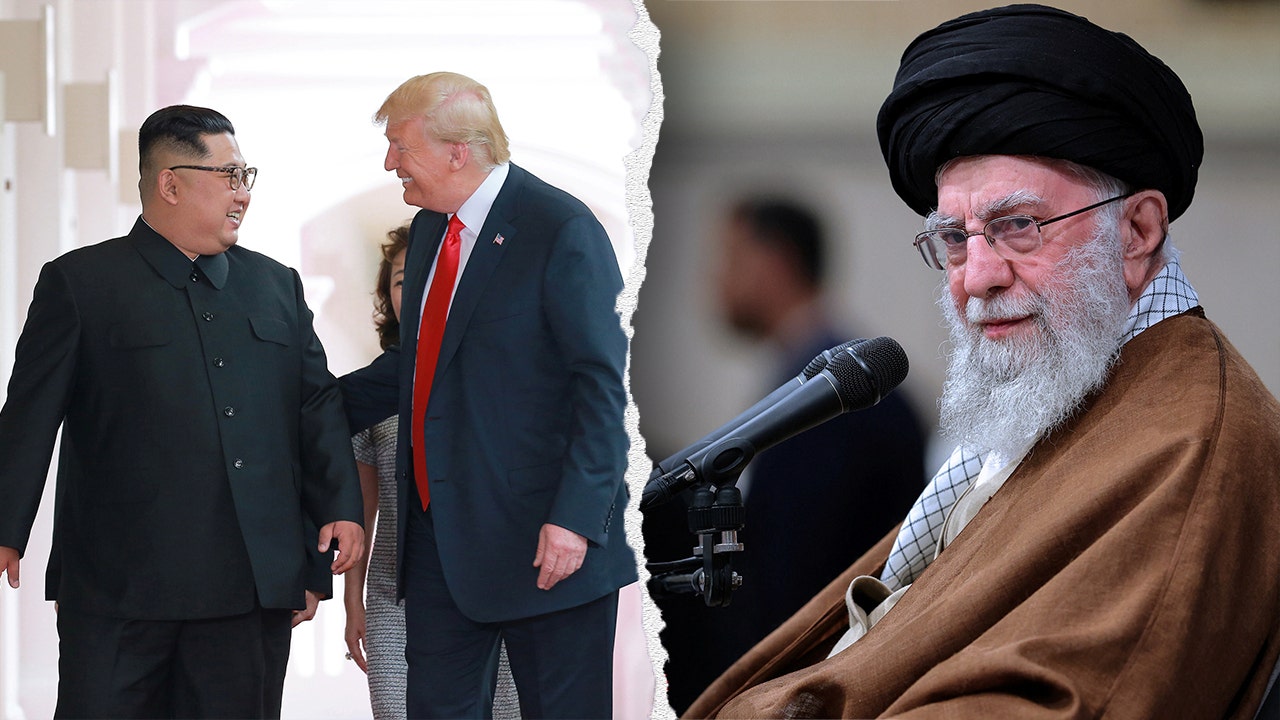World
Trump must not repeat his Kim Jong Un mistake with Iran, security expert warns

Trump’s Surprising Announcement on Negotiations with Iran Sparks Debate
President Donald Trump’s recent announcement that he wants to negotiate with Iran has sent shockwaves through the security and diplomatic communities. The revelation, posted on his Truth Social platform, outlined his desire for a “Verified Nuclear Peace Agreement” and expressed optimism about a potential deal. However, the timing of this announcement has raised eyebrows, as it came just a day after he signed an executive order implementing a “maximum pressure” campaign against Iran, targeting its oil exports with sanctions. This dual approach—combining tough sanctions with a call for negotiations—has left many analysts and former officials questioning Trump’s strategy.
A Cautionary Tale: Lessons from Trump’s Diplomacy with North Korea
The debate over Trump’s approach to Iran has drawn comparisons to his diplomatic efforts with North Korea during his first term. Trump famously cultivated a personal relationship with North Korean leader Kim Jong Un, even describing their interactions as a “love” affair. However, despite the fanfare surrounding their summits, Trump’s diplomacy failed to achieve its primary goal: halting North Korea’s nuclear program. John Hannah, a former national security advisor to Vice President Dick Cheney and a senior fellow at the Jewish Institute for National Security of America (JINSA), warned that Trump’s approach to Iran could follow a similar path. Hannah expressed concern that Trump might fall into a pattern of engagement with authoritarian leaders, where negotiations become drawn out and yield little progress in addressing critical issues like nuclear disarmament.
Trump’s Dual Strategy: Sanctions and Negotiations
Trump’s decision to pursue negotiations with Iran is puzzling, given the stringent sanctions he recently imposed on the regime. The sanctions targeting Iran’s oil exports are part of a broader “maximum pressure” campaign aimed at curbing Tehran’s nuclear ambitions. However, Trump’s willingness to negotiate raises questions about his long-term strategy. Some observers speculate that this dual approach—combining economic pressure with diplomatic overtures—might be a negotiating tactic designed to create leverage. However, Hannah and other experts argue that 25 years of negotiations with Iran have yielded little progress. They point out that Iran is now closer than ever to achieving nuclear weapons capability, making the stakes higher than ever.
Experts Warn of a Ticking Clock on Iran’s Nuclear Program
The Trump administration is facing a critical deadline in its efforts to address Iran’s nuclear program. In October, Russia, a key ally of Iran, will assume the presidency of the United Nations Security Council, potentially complicating international efforts to pressure Tehran. Additionally, the ability of JCPOA signatories to reimpose “snapback” sanctions on Iran under the nuclear deal is set to expire in October 2025. Elliott Abrams, a former special representative for Iran and Venezuela, emphasized the need for urgent action. Abrams warned that if negotiations drag on without results, the U.S. and its allies, particularly Israel, may need to consider other options, including military action, to prevent Iran from advancing its nuclear program.
Iran’s Response: A Rejection of Negotiations
Iran’s Supreme Leader, Ayatollah Ali Khamenei, has already rejected the idea of negotiating with the Trump administration, calling such talks “unwise.” This stance highlights the deep mistrust between the two nations and the significant hurdles Trump faces in achieving his stated goal of a nuclear peace agreement. While some analysts believe that Iran’s rejection may soften over time, particularly if sanctions take a toll on its economy, others argue that Tehran is unlikely to make concessions without significant pressure. Retired Israeli Major General Yaakov Amidror, a former national security advisor to Prime Minister Benjamin Netanyahu, suggested that Iran is well aware of the potential consequences of pursuing nuclear weapons, but its leaders may be counting on diplomatic stalling tactics to buy time.
The Uncertain Future of U.S.-Iran Relations
The future of U.S.-Iran relations under a potential Trump administration remains deeply uncertain. While Trump’s announcement has sparked hope in some quarters, it has also raised alarms among experts who fear a repeat of past failures. The coming months will be critical, as the U.S. and its allies navigate the complex interplay of sanctions, negotiations, and military deterrence. For now, one thing is clear: the stakes are high, and the path forward is fraught with challenges. As Trump pursues his vision of a nuclear peace agreement, the world will be watching closely to see whether his unconventional approach will yield results—or whether it will succumb to the same pitfalls that have doomed previous attempts at diplomacy with Iran.